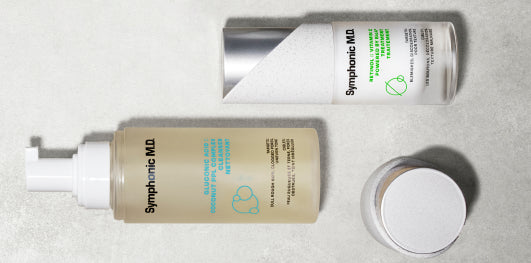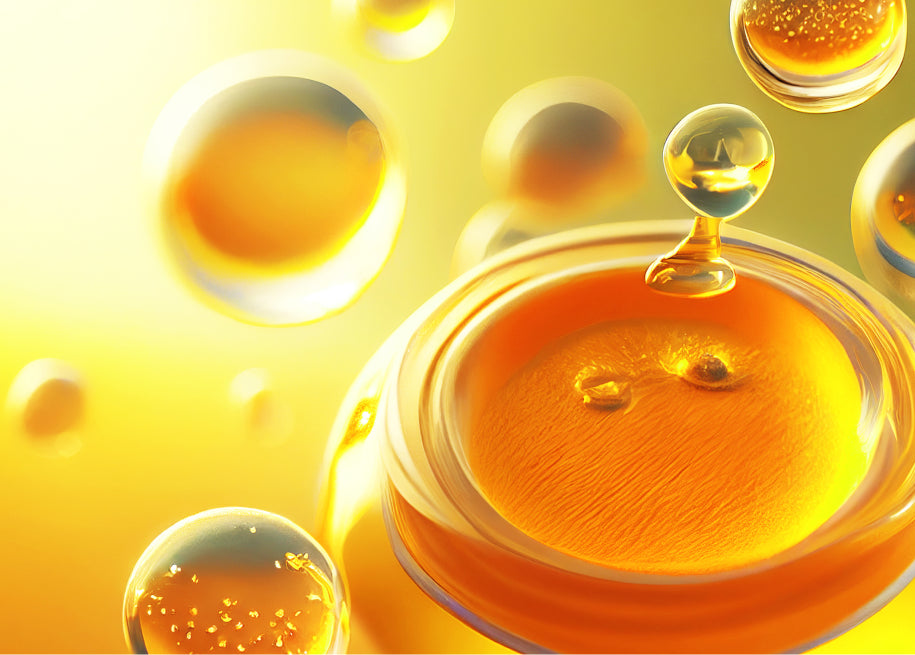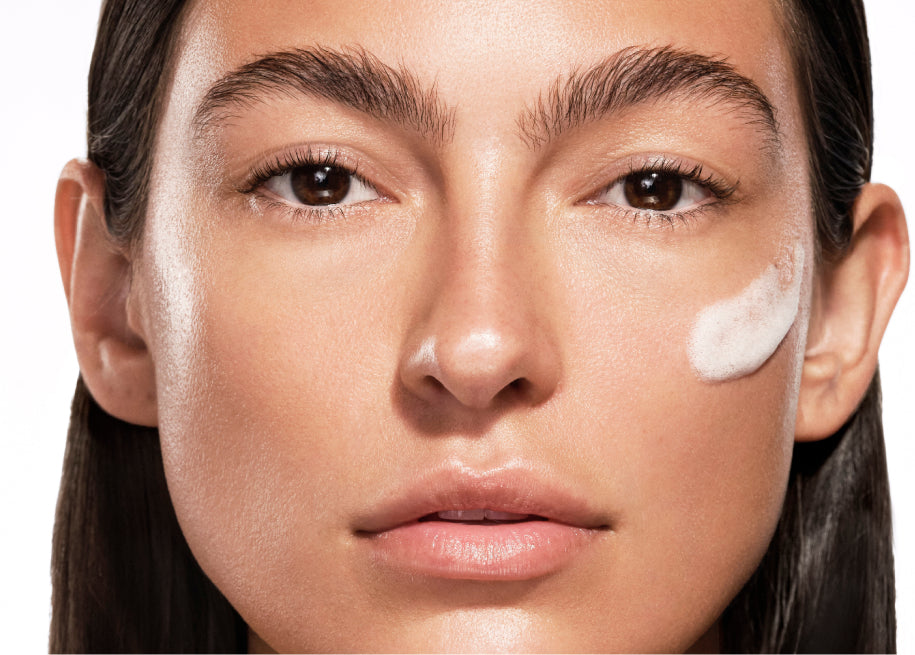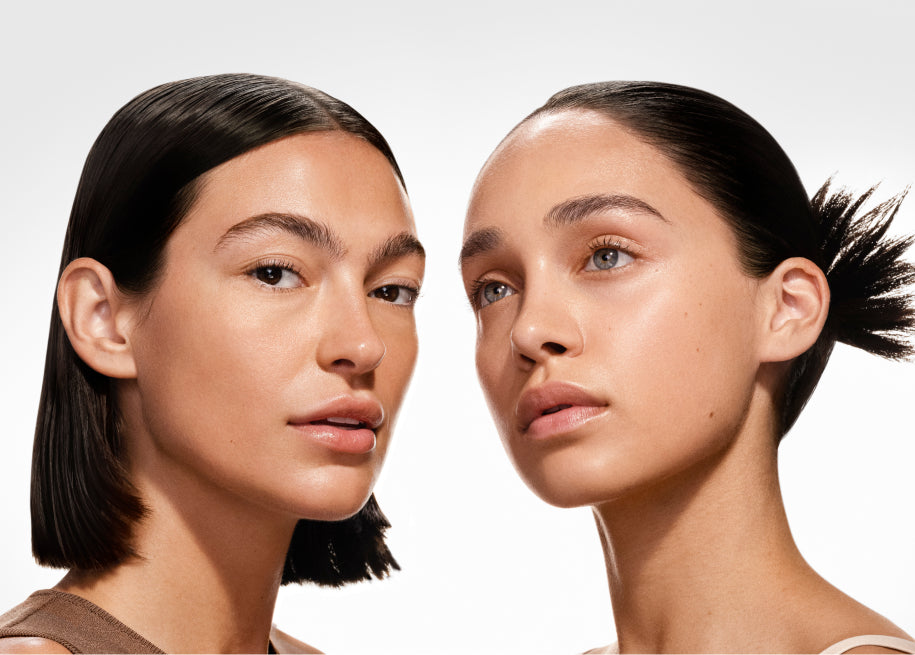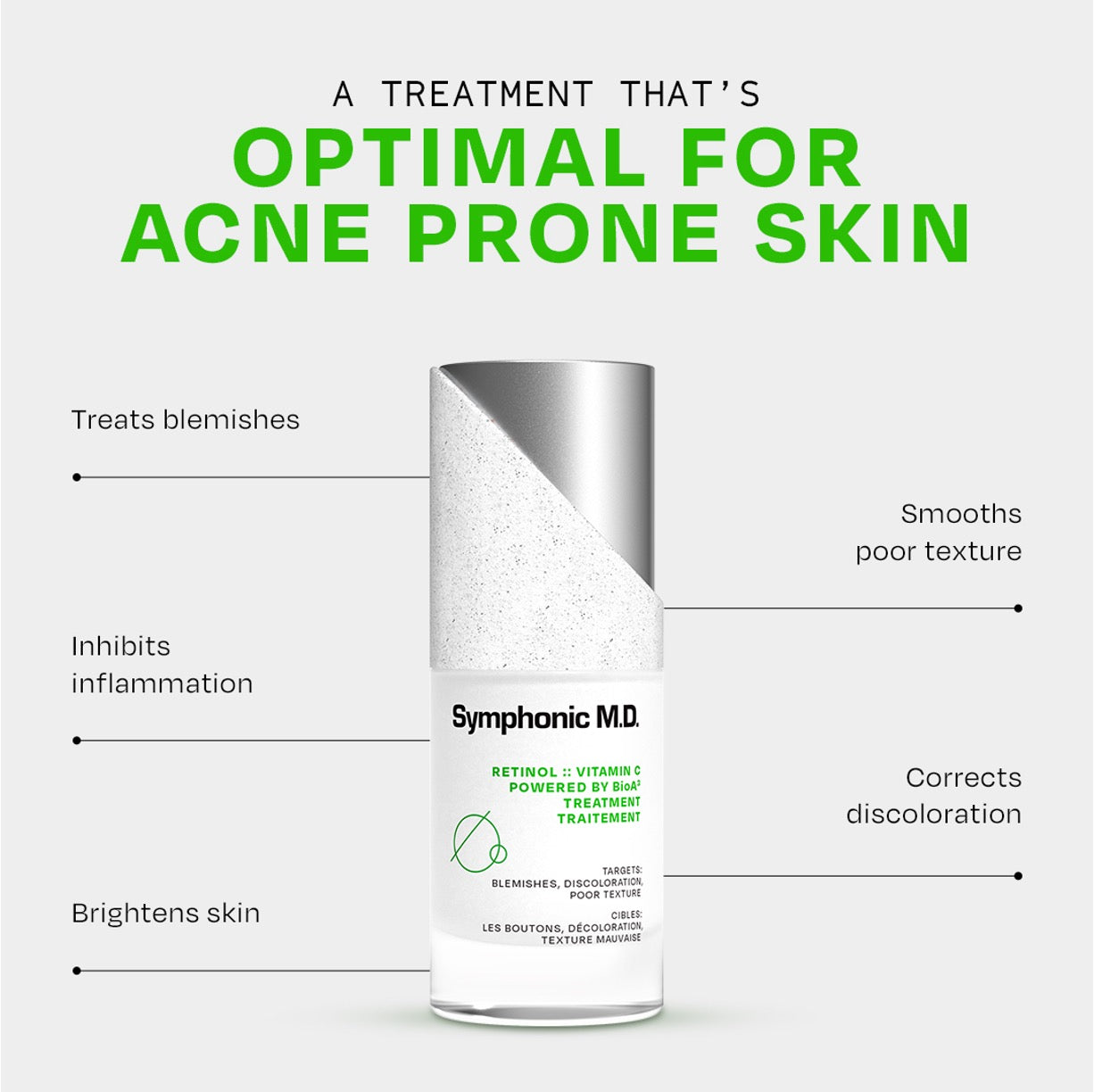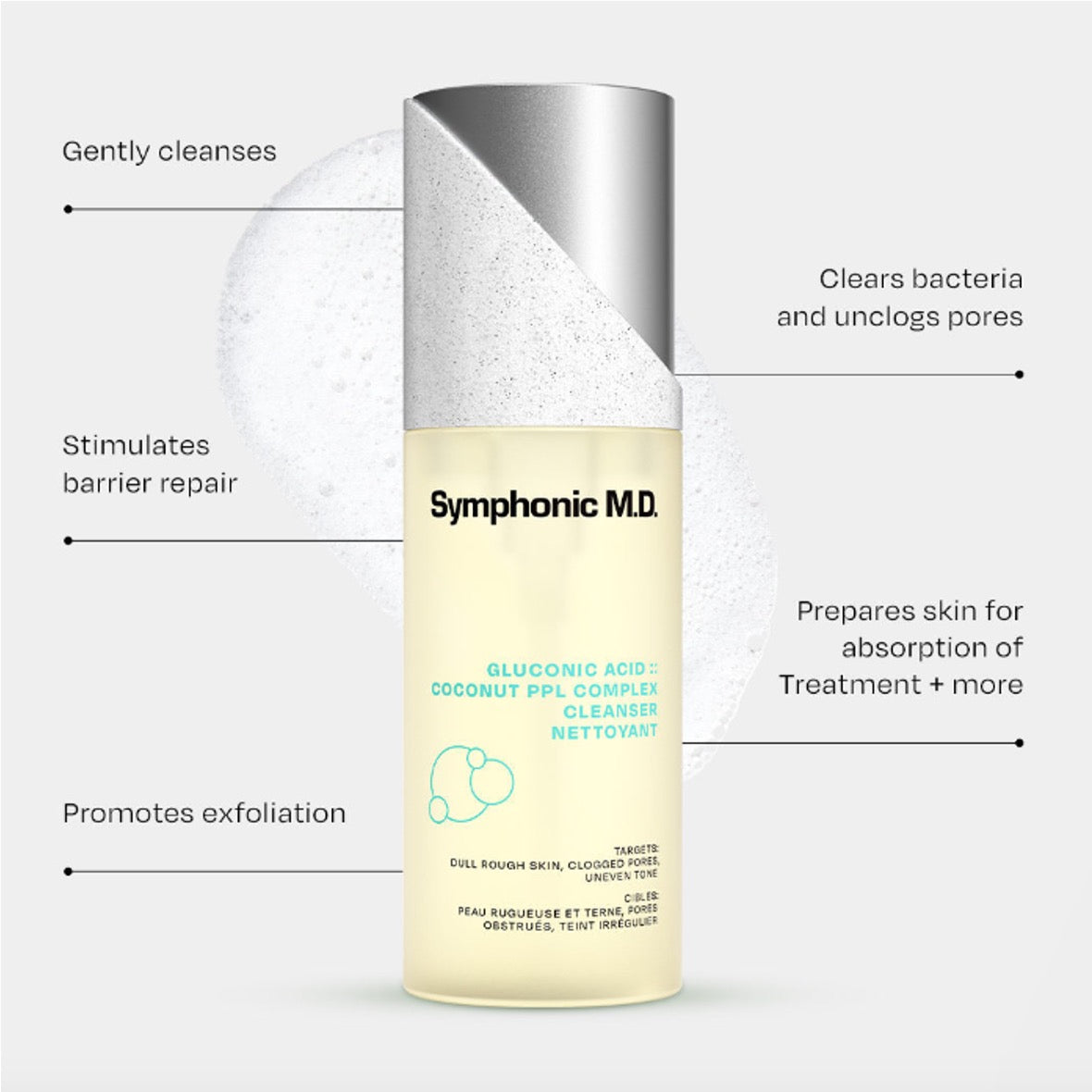Stress and wrinkles are inevitable parts of life, and both can be hard to avoid. But does stress give you wrinkles? And how can stress wrinkles go away if you do get them? We take a deep dive into the connection between stress and wrinkles to establish whether stress plays a big role in causing wrinkles, and the steps you can take to prevent and minimize them.
How stress can cause wrinkles
Stress is responsible for many different things in our lives, including issues or concerns with our skin. It can also contribute significantly to the development of premature wrinkles, also known as glycation, via various psychological mechanisms.
When the body is under stress, no matter how it’s caused, it triggers several hormonal and biochemical responses that can impact the skin in several different ways.
Cortisol release
One of the first things that happens when the body takes on stress is that it releases a hormone called cortisol. This hormone is associated with the body’s “fight or flight” response. When cortisol levels rise, the body may produce more oil in the skin which could cause acne and overly oily skin. If cortisol levels are continually elevated, over time the skin’s elasticity can be affected, causing it to wrinkle more quickly.
Inflammation
If you’re under chronic stress, or you’re frequently feeling stressed, you could experience systemic inflammation which plays a large role in the aging process. Inflammation can break down collagen and elastin, which are the proteins that provide structure and elasticity in the skin. As these fibers degrade, the skin can lose its firmness and become more prone to developing wrinkles.
Free radicals
Free radicals are molecular species that contain an unpaired electron in an atomic orbital while existing independently. In simple terms, they are unstable molecules that can cause damage to our cells, including skin cells. Our skin is regularly exposed to air, solar radiation, and environmental pollutants which are all capable of generating free radicals and bringing them into contact with the skin, causing oxidative stress. This stress can accelerate the aging process and cause wrinkles to form earlier.
Muscle tension
When we’re stressed, we have a tendency to tense our muscles, especially those in facial areas such as the forehead or around the eyes. If we continue to tense these muscles frequently and cause repetitive muscle contractions, wrinkles can form in these areas over time.
Impaired repair processes
Our skin needs time to constantly repair and regenerate, but stress can interfere with this necessary process. For example, if the skin has been damaged by factors such as UV radiation from the sun or environmental pollutants, and then we are stressed, the skin may not be repaired as efficiently. If this happens, wrinkles can develop and premature aging can set in.
Are stress-induced wrinkles permanent?
While stress-induced fine lines and wrinkles can be troublesome, the good news is that they are not necessarily permanent. Whether your stress wrinkles can go away will depend on several factors, including your skin characteristics, the severity of the wrinkles, and how well you address the underlying causes - i.e. how well you manage stress in the future. On the other hand, if your wrinkles are caused by temporary factors such as dehydration, inflammation, or muscle tension, you could improve them by addressing the root causes.
Is stress more likely to cause wrinkles on mature skin?
The natural aging process can be held accountable for many things, especially wrinkles as our skin loses collagen and elasticity. And while stress can cause wrinkles for people of any age, its overall impact can depend on different factors such as genetics, lifestyle, and overall skin health.
Mature skin that has already been through some of the aging process tends to be more susceptible to stress-induced wrinkles due to the continual decline of collagen and elastin production, as well as reduced skin cell turnover. In mature skin, stress can accelerate existing signs of aging, therefore contributing to the formation of new wrinkles.
7 ways your skincare routine can reduce stress wrinkles
While reducing your stress levels is essential for preventing and reducing the appearance of stress-induced fine lines and wrinkles, a balanced and consistent skincare routine can also support their impact. By promoting overall skin health and addressing specific elements that could be influenced by stress, you can start to see some great results.
It’s important to remember that everyone’s skin is unique and your skin may react differently to different products. Choosing products to suit your skin type and skin concerns can help you ensure you’re using the right ingredients. If you’re not sure what you need, it could be beneficial to speak to a dermatologist who can recommend products to meet your needs.

Here are some key skincare recommendations for reducing the appearance of stress-induced wrinkles.
1. Cleanse regularly
Cleansing the skin is vital for keeping your skin looking healthy and radiant. Using a gentle cleanser in the morning and evening helps to remove dirt, oil, and makeup, keeping your skin clear and preventing the production of excess oils. Cleansing regularly can also help your anti-aging and anti-wrinkle products work more effectively, as well as preventing clogged pores and maintaining optimal pore size.
If you’re not sure what type of cleanser to use, our Gluconic Acid:: Coconut PPL Complex cleanser is a good option to start with. This product has been formulated to gently shed skin cells while strongly stimulating barrier repair to leave your skin soft, purified, and ready for your other skincare products.
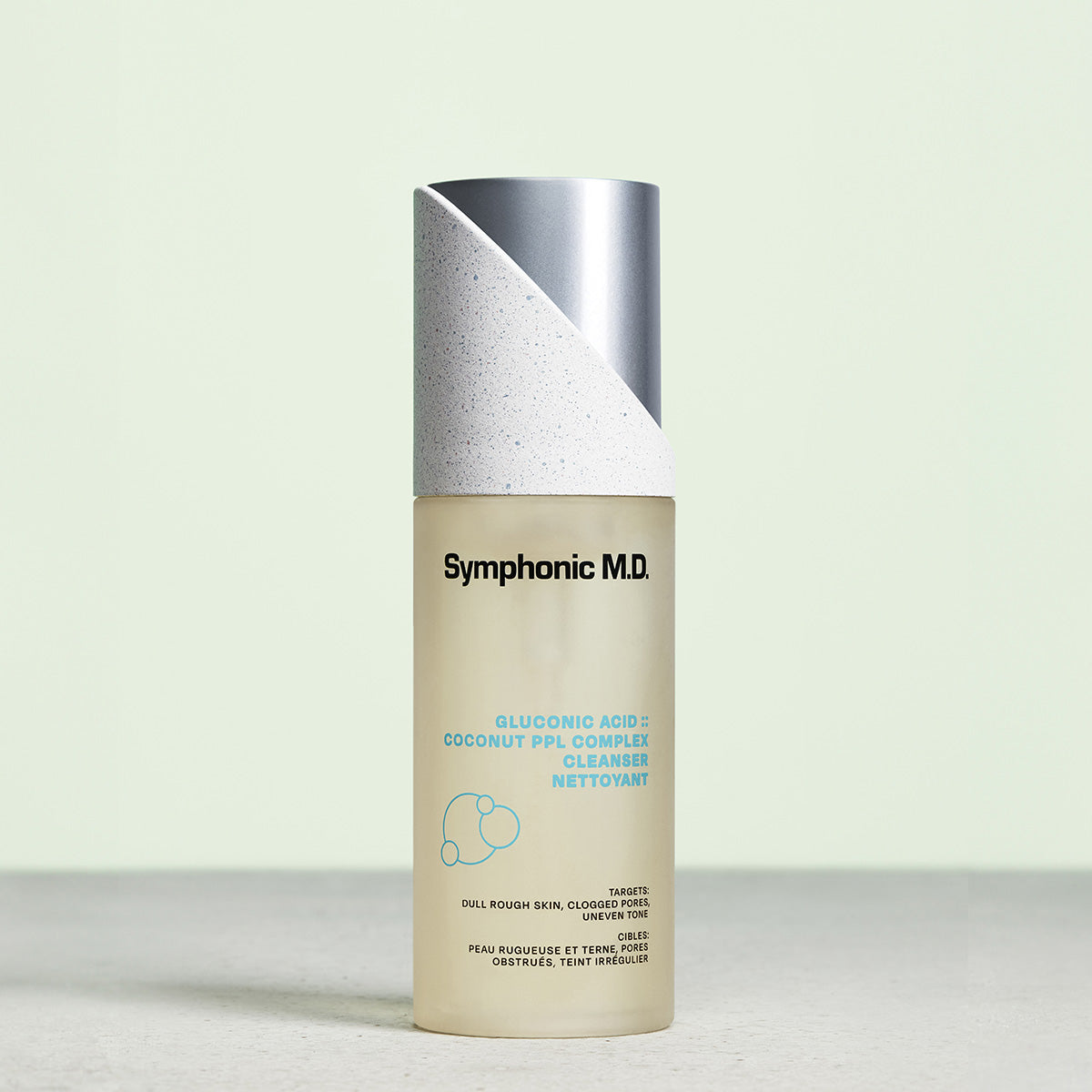
Gluconic Acid :: Coconut PPL Complex
This calming antimicrobial formula targets dull skin, clogged pores, and uneven tone — gently shedding cells while strongly stimulating barrier repair to leave skin soft and purified.
2. Stay moisturized
Keeping your skin adequately nourished is essential for preventing and reducing the appearance of wrinkles. This is because dry skin is more prone to developing fine lines and wrinkles, so keeping it moisturized helps to maintain hydration and prevent these wrinkles from forming.
When choosing a moisturizer, it’s important to select the right product for your skin type. You should look for products with ingredients that support the reduction of wrinkles, such as hyaluronic acid, glycerin, or ceramides.
3. Apply sunscreen
We should all know by now that applying sunscreen every day is a must, but it’s even more important if you’re trying to reduce or prevent wrinkles. The sun’s UV radiation plays a significant role in premature aging and wrinkle formation, by using a broad-spectrum sunscreen with an SPF of at least 30 can help prevent these wrinkles from forming too early. Using sunscreen to protect the skin can also support your skin’s natural ability to repair and renew.
4. Use an antioxidant serum
Antioxidants, such as vitamins C and E, should be essential components of your skincare routine. These antioxidants can help to protect the skin from free radical damage caused by stress and environmental factors, enabling you to keep those stress-induced wrinkles at bay. You can incorporate antioxidants through serums, as well as moisturizers containing these ingredients which can also boost collagen production.
5. Consider retinoids
Retinoids are a powerhouse when it comes to skincare, especially if you’re looking to reduce the appearance of stress wrinkles. Retinoids are derived from vitamin A and help to stimulate the production of collagen and promote cell turnover, resulting in smoother skin with fewer fine lines and wrinkles.
The most common retinoid available over the counter is retinol, and although it might be a milder retinoid than some others, it should be used with care. As a strong active ingredient, you need to start slowly by using low concentrations until your skin builds up tolerance.
New to retinol and don’t know where to start? Learn everything you need to know about the strengths, dosages, benefits and more in our detailed guide Retinol for Beginners: What is a Good Retinol to Start With?
6. Try hydrating masks
We’ve already mentioned how keeping your skin moisturized is crucial in reducing the appearance of wrinkles, an additional boost to this nourishment in your skincare routine could be hydrating masks. Sheet masks or ‘leave on’ masks that contain ingredients like hyaluronic acid or aloe vera can be particularly beneficial in moisturizing the skin. Plus, if you’re feeling particularly stressed, applying a face mask is a great way to wind down and relax.
7. Introduce eye creams
When we’re stressed, our eyes tend to show early signs of this, either through the appearance of fine lines or tiredness. Eye creams can be beneficial in addressing signs of stress, especially if you choose products that are formulated to target your concerns. Peptides and hyaluronic acid are particularly good at reducing fine lines and wrinkles, as well as puffiness around the eyes which often occurs as a result of stress.
Skincare ingredients that can reduce and prevent stress wrinkles
The skincare market is awash with ingredients all claiming to provide benefits to your skin. However, several particular ingredients can have a positive effect on the appearance of stress-related wrinkles. Before you go out and buy products containing them all, it’s important to understand that you need to introduce new products to your skin slowly, so it has time to adjust. You should also patch-test new skin products to ensure your skin doesn’t have any adverse reactions.
Here are the best ingredients to look for when shopping for wrinkle-reducing skincare products.
Retinol
Retinol is well known for its ability to address visible signs of aging, including fine lines and wrinkles. It does this in a few different ways. Firstly, retinol boosts collagen production, the protein responsible for providing structure and firmness to the skin. Secondly, retinol accelerates skin cell renewal by shedding old, damaged cells and promoting the growth of new ones. This process improves the skin’s overall texture and reduces the appearance of wrinkles.
Another benefit of retinol when it comes to wrinkle reduction is its ability to improve skin elasticity, which is essential for helping the skin maintain its structure and resilience. When skin elasticity is improved, the skin appears more plump, and therefore wrinkles are less visible.
When using retinol, it’s important to start with low-strength products and gradually build up to stronger products as your skin becomes used to it. Our Retinol:: Vitamin C Powered by BioA3 moisturizer is a good product to start with. This product has been specially formulated with vitamin C to utilize the benefits of both products. When working together, these ingredients can increase the skin’s radiance and reduce the appearance of fine lines, wrinkles, and blemishes.
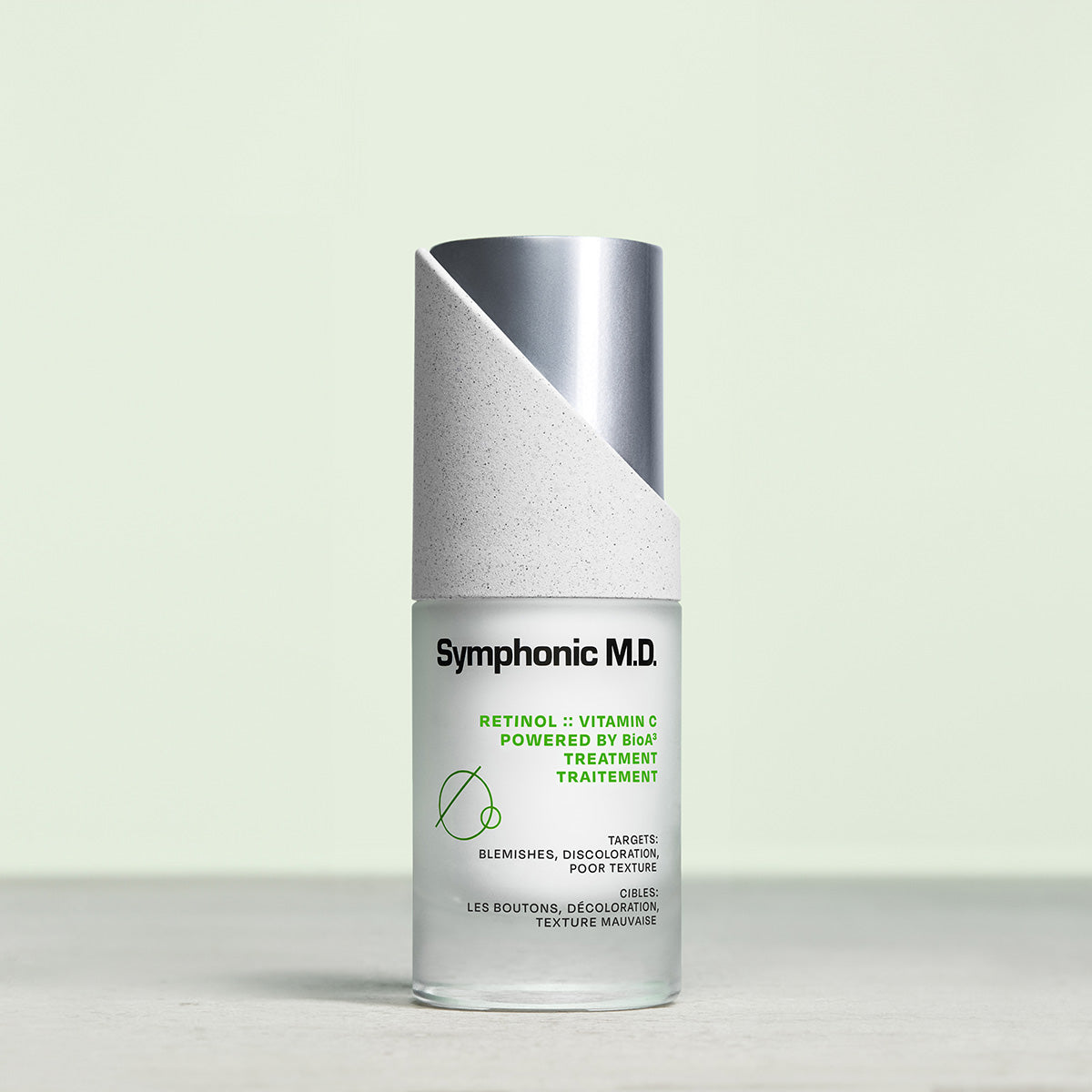
Retinol :: Vitamin C
This anti-inflammatory serum powered by BioA3 targets blemishes, tone, and texture — helping to clear bacteria and smooth skin without clogging pores.
Vitamin C
The power of vitamin C is widely known, especially when it comes to skin benefits. Vitamin C is a potent antioxidant that plays a vital role in collagen synthesis - a key protein our skin needs to improve its structure. By promoting collagen synthesis, vitamin C can help to maintain skin elasticity and firmness, resulting in fewer fine lines and wrinkles.
The antioxidant properties of vitamin C help to protect the skin from free radicals and associated oxidative stress. We know that this type of stress can promote wrinkles, so by using vitamin C you can help to combat them and reduce their appearance. Vitamin C also promotes cell turnover with an exfoliating action that helps to improve the skin’s texture and reduce the appearance of wrinkles.
Using our Retinol:: Vitamin C Powered by BioA3 moisturizer can help your skin to take advantage of the benefits of both vitamin C and retinol, saving you time and money in your skincare routine with one single product.
Struggling to choose between retinol and vitamin C for your skincare needs? Wondering if it's possible to harness the benefits of both? Our comprehensive guide Retinol vs. Vitamin C: Which is Better for the Skin? explains how each ingredient uniquely benefits your skin. Learn how to effectively integrate both into your skincare routine for optimal results.
Hyaluronic acid
You’ll have seen hyaluronic acid in many skincare products, and for good reason. This hydrating ingredient is vital for reducing the appearance of wrinkles by offering greater nourishment to the skin and maintaining skin elasticity. Hyaluronic acid attracts and retains water, ensuring the skin is adequately moisturized which leads to plumper-looking skin.
Peptides
Stimulating collagen production is essential when trying to reduce the appearance of stress wrinkles, so using ingredients that do this can really help. Peptides are short chains of amino acids that improve the elasticity of the skin and boost the production of collagen. They are often found in eye creams, serums, and moisturizers.
Niacinamide (Vitamin B3)
Our skin has a barrier which is essential for protection. Products that contain niacinamide can be beneficial in improving the skin’s barrier function, and in turn, reduce the appearance of fine lines and wrinkles. This is because niacinamide contains anti-inflammatory properties that help to reduce redness and improve uneven skin tone, leading to benefits for wrinkles.
Ceramides
Ceramides are another ingredient to look out for thanks to their ability to strengthen the skin barrier. These lipid modules work to prevent loss of moisture and improve the skin’s hydration, helping to improve the appearance of the skin and reduce wrinkles.
Alpha Hydroxy Acids (AHAs)
Gentle exfoliation can be hugely beneficial in reducing the appearance of fine lines or stress wrinkles, as long as it’s done with the right ingredients and not too harshly. Alpha Hydroxy Acids, like glycolic acid and lactic acid, gently exfoliate the skin to remove dead skin cells and improve the texture of the skin. This regular, but gentle exfoliation, can contribute to smoother, more radiant skin with less visible wrinkles.
Caffeine
While stress can cause wrinkles almost anywhere on the face, it’s often prominent around the eyes. Stress wrinkles around the eyes can manifest themselves as fine lines, dark circles, or visibly tired-looking eyes. Caffeine is a great ingredient to add to your skincare routine to help reduce stress-related wrinkles. It’s typically available in eye creams and serums and it’s a great ingredient for improving puffiness or dark circles around the eyes.

Different ways to minimize stress and reduce wrinkles
While your skincare routine plays an important role in minimizing the appearance of stress-induced wrinkles, there are a variety of other things you should do to minimize stress in your life. Not only will they help you to prevent and reduce the appearance of your wrinkles, but they will also help to support your mental health and overall well-being.
- Schedule time for relaxation - ensuring you have time in your schedule to do things that make you feel relaxed is a great way to minimize and control stress. This is especially important if you have an overly busy lifestyle and rarely find time to relax.
- Stay active - exercise can be beneficial for a range of reasons, including lowering your level of stress hormones, producing oxytocin which is also known as the “happy hormone”, and enabling you to take your mind off stressful situations.
- Adopt positive lifestyle habits - eating healthily and getting plenty of sleep are essential for reducing stress. When you adopt these habits regularly, they feel less of a chore, enabling you to reduce stress as part of your daily routine.
- Talk it out - if you’re going through a stressful time or something in your life is regularly making you feel stressed, it can be beneficial to speak to someone about it and get things off your mind. You could talk to a friend, family member, or even a mental health professional
- Avoid bad habits - drugs and alcohol can wreak havoc when it comes to stress. Both can amplify whatever you’re feeling at the time and if that feeling is stress, it can be further elevated by alcohol or drugs. Drugs and alcohol can also cause dehydration, which if left unmanaged or frequently occurring, can result in more wrinkles.
Other effects stress can have on your skin
Stress is often bad news for your skin, and not just because it contributes to the formation of fine lines and wrinkles. There are several other effects that stress can have on your skin, which we’ll cover here.
Acne and breakouts
When we’re stressed, the body releases hormones such as cortisol and androgens which can encourage the skin’s sebaceous glands to release more oil. This additional oil on the skin can result in clogged pores and therefore, acne breakouts.
Inflammation
Regular or chronic stress can put the body in a pro-inflammatory state, which means the immune system gets ready to create an inflammatory response to defend the body. This systemic inflammation can make certain skin conditions, such as eczema, psoriasis, and rosacea worse and more prone to flare-ups.
Impaired skin barrier function
The skin’s natural barrier is vital for protection, but stress can compromise this barrier and make the skin more susceptible to irritants and allergens. This can result in greater sensitivity, redness, and dry skin.
Delayed wound healing
Whether it’s a small cut or a more serious wound, stress can interfere with the normal wound-healing process due to elevated cortisol levels. This is because cortisol affects the body’s ability to produce anti-inflammatory cytokines which are essential for healing. When cortisol is high due to stress, the injured area can remain inflamed and will be slow to heal.
Skin dehydration
Stress can affect the skin’s ability to retain enough moisture, which can lead to dryness and dehydration. This is exacerbated further if your stress is causing you to drink less water and be inconsistent with your skincare routine. When the skin is dehydrated, it can look dull and lackluster which can contribute to the formation of fine lines and wrinkles.
Allergic reactions
If you’re someone who is prone to allergies or you have sensitive skin, stress can make these allergies and sensitivities worse. Stress can even trigger allergic reactions in some individuals who have never had allergic reactions before. Allergic reactions often appear as redness, itching, or hives on the skin.
Hair and nail issues
Our bodies and their functions are all interconnected, so as stress can cause problems with the skin, it can also impact the health of our hair and nails. Stress could contribute to conditions including hair loss, changes in hair texture or brittle nails.
Behavioral factors
There is much more to stress than just visible issues, it can also impact our brain function and cause us to engage in behaviors that further damage the skin. For example, when stressed some people turn to subconscious hair pulling, skin picking, or neglecting their skin routine. These habits can worsen any existing skin conditions or lead to infection or other skin issues.
Bottom line
Stress has a lot to answer for when it comes to our skin, especially concerning the formation of stress wrinkles or fine lines. However, the good news is that by forming positive lifestyle habits and maintaining a consistent skincare routine - with high-quality products designed to treat your concerns, you can reduce their appearance and prevent new wrinkles from forming.
To start your skincare journey and treat your stress wrinkles, try our Retinol:: Vitamin C Powered by BioA3 treatment.
FAQs
Is there a difference in the way stress affects wrinkles in men and women?
Stress on the skin and the aging process are similar in men and women, however, the differences in hormones and skin structure can cause stress to manifest itself differently. For example, men tend to have thicker and more resilient skin which could delay the onset of stress-induced wrinkles. In contrast, lifestyle differences and skincare practices can also play a role in how stress affects the skin in both genders.
What does stressed skin look like?
Typical signs of stressed skin include a dull, tired, and uneven skin tone. Depending on your skin type, stress could also cause irritation or acne breakouts. Frequent stress can also cause fine lines and wrinkles to appear earlier, resulting in the skin looking less radiant and more aged.
Are stress lines and wrinkles the same?
Stress lines and wrinkles are similar, but not necessarily the same. Stress lines typically refer to temporary lines that appear due to facial expressions pulled when we’re stressed - i.e. frowning. Wrinkles are more permanent features of the skin that have developed over time due to factors such as chronic stress, natural aging, sun exposure, and lifestyle habits.
Does reducing stress make you look younger?
Making an effort to reduce stress can help your skin look younger for longer. Lowering your stress levels can vastly improve your skin health, resulting in less inflammation or breakouts, and a more radiant, youthful complexion. However, aging comes to us all and so do wrinkles, so while reducing your stress levels can help, it unfortunately won’t stop aging altogether.

